Middle East
‘Every shot fired’: Are Yemen’s Houthis a proxy force for Iran? | Israel-Palestine conflict News
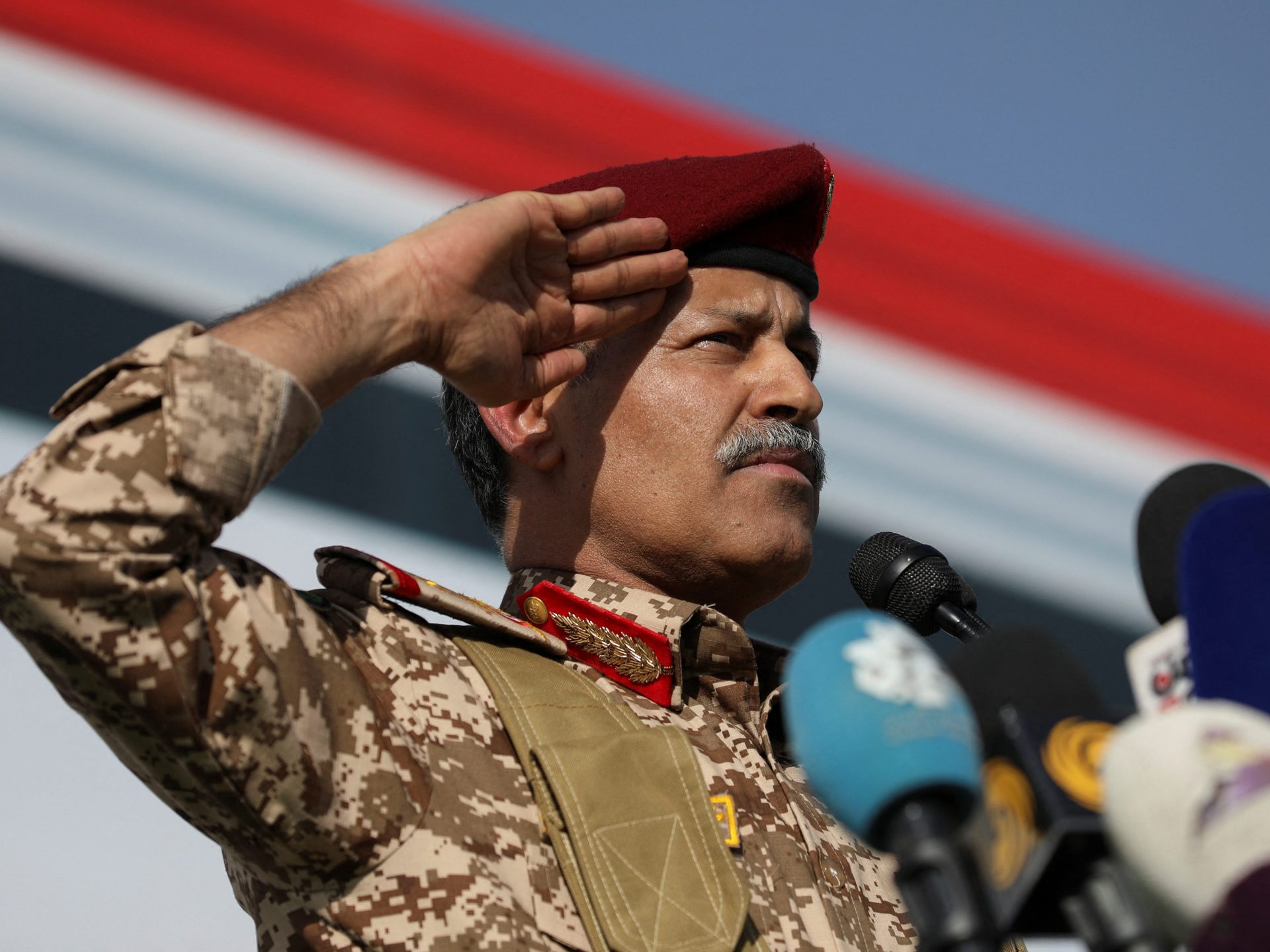
Tehran, Iran – The United States has continued its attacks on Yemen, injuring people and causing extensive damage.
After he ordered a bombing campaign against the Houthis – which has so far killed at least 53 people since Saturday – President Donald Trump said he would hold Iran responsible for any attacks by the group against shipping in the Red Sea.
Iran and Yemen’s Houthi movement have long been allies, part of a regional “axis of resistance” against Israel and the United States.
However, the extent of the relationship is often disputed. Some see the Houthis as an Iranian proxy, while others view the Houthis as a group friendly to Iran, but independent.
On Friday, Iran’s Supreme Leader Ayatollah Ali Khamenei said that his country has no need for proxies and that the Houthis act in their own interests.
According to his public comments, US President Donald Trump falls in the first camp.
Washington will view “every shot” fired by the Houthis as a shot fired by Iran that could bring about “dire consequences”, he said.
Do Iran and the Houthis operate hand in hand? Or is it more nuanced than that? Let’s take a closer look:
Who are the Houthis?
Officially known as Ansar Allah (supporters of God), the Houthis are a political and military movement that emerged in the 1990s but rose to international prominence in 2014 when they took control of the Yemeni capital, Sanaa.
After months of fighting with the Yemeni government and other forces, a military coalition led by Saudi Arabia with support from the US and the United Arab Emirates, among others, intervened militarily against the Houthis.
But the group is still in control of Sanaa and, if anything, has grown stronger over the past decade.
Since the beginning of Israel’s war on Gaza, the Houthis have been attacking Israel-linked ships heading through the Red Sea, and launching direct missile and drone attacks on Israel to pressure it to end its war on the besieged enclave.

What military support does Iran give the Houthis?
Tehran has publicly backed the Yemeni armed group for years but denies directly providing it with advanced weaponry that has been used in combat in the past few years.
The Houthis say they manufacture weapons domestically, and point out that – as the de facto state in Sanaa and Yemen’s heavily populated northwest – they have taken over weapons stockpiles left behind by the government when it fled south.
The group has tried to diversify its arms manufacturing industry, making more weapons domestically while still partly relying on imported parts.
Israel said the Houthi projectile that crashed in its territory in July 2024, killing one person and injuring several others, was an Iranian-design suicide drone.
Houthi authorities said they planned and executed the strike themselves, and Iran was not in the loop.
A United Nations panel of experts also said last year that the Houthis received training from Iran and the Lebanese group Hezbollah and that the Houthis do “not have the capacity to develop and produce, without foreign support, complex weapons systems”.
Western countries, however, maintain that Iran has transferred weapons and technologies for ballistic missiles, antiship cruise missiles, and a variety of drones. They also claim that Iran’s Islamic Revolutionary Guard Corps (IRGC) has trained Houthi soldiers and advises them militarily.
The US has alleged the Houthis have also tried to buy weapons and parts through companies in China while working to get antiship cruise missiles from Russia amid the fallout of Moscow’s war in Ukraine.
How close are Iran and the Houthis diplomatically?
Iranian diplomats frequently host Houthi officials, and Iranian state media hails the group as an important member of the Tehran-led axis of resistance.
The two sides were in constant contact during Yemen’s civil war, with Iran condemning coalition attacks on Yemen amid what was described as the world’s worst humanitarian crisis.
The Houthis increased their attacks on the coalition in the aftermath of the 2020 US assassination of Qassem Soleimani, Iran’s top general and a main architect of the axis.

How similar is the ideology of Iran and the Houthis?
The Houthis have been known to adopt similar geopolitical rhetoric to Iran, support the principles of the Islamic Revolution in Iran, and the Iranian political system has greatly influenced them.
However, the Houthis differ from the Iranian establishment in many ways.
The Houthis largely follow the Zaidi school of Shia Islam, which has similarities to but differs from, the Twelver Shia Islam practised in Iran.
The Zaidi tradition has been in Yemen for more than 1,000 years – and the Houthis see themselves as part of that legacy, and having grown organically as a local movement, rather than a foreign project.
The group has also set out independent political and military objectives, such as gaining control over a unified Yemen and fighting foreign intervention, especially by the US and Israel.
The Houthis have demonstrated a willingness to attack Saudi Arabia and the UAE based on Yemeni grievances, particularly those involving air strikes and blockades that devastated the local population.
At times, they have ignored Iranian advice, including when they unilaterally declared a ceasefire and held talks with Saudi Arabia in 2019 when Tehran was believed to be in favour of military resistance.
What happens now?
Washington has signalled it intends to bomb Yemen in the coming weeks, or even months.
The dozens of air strikes across the country to date have killed children and women, along with Houthi fighters.
The attacks came after the Houthis threatened to resume their strikes – that had halted after the January 19 ceasefire in Gaza – in opposition to Israel’s blocking of all humanitarian aid from entering the enclave.
After Israel killed at least 436 Palestinians in Gaza on Tuesday and continued brutal air strikes, Houthi leader Abdel-Malik al-Houthi promised in a televised speech to take military escalation to the highest level.

The Houthis have claimed five rounds of missile and drone attacks against US aircraft carrier the Harry S Truman and its supporting warships.
They announced that they launched a missile towards Israel’s Ben Gurion International Airport. The Israeli military said the missile was intercepted.
For its part, Iran has warned that all-out regional war could break out if it is attacked.
Iran’s mission to the UN also wrote a letter this week to the Security Council to condemn “reckless and provocative” statements by Trump.
Hardliners in Tehran have increasingly signalled they will push to build a nuclear bomb if the existence of the Iranian establishment is threatened.
Middle East
US attacks Yemen again after at least 80 people killed in Hodeidah | Israel-Palestine conflict News
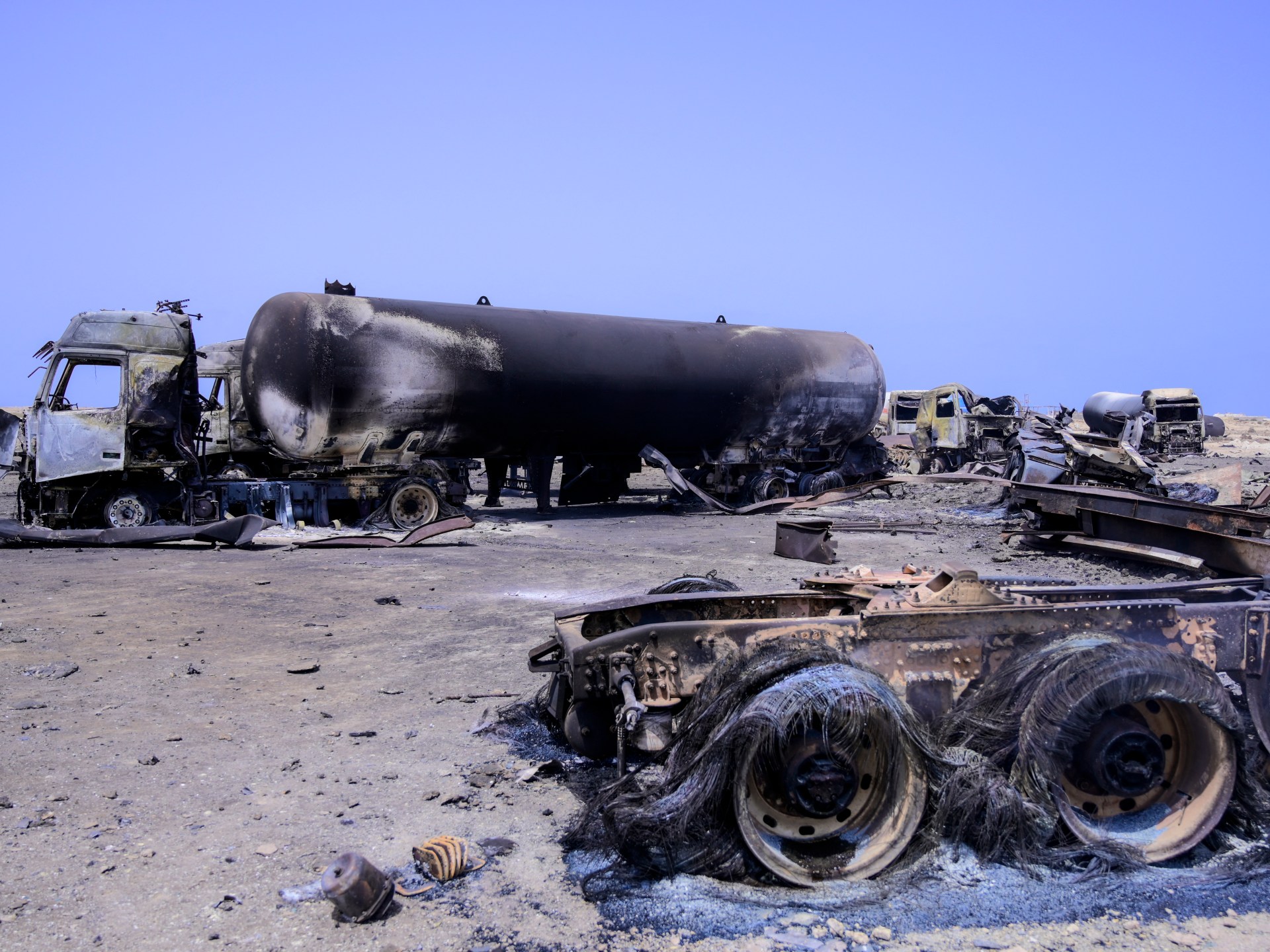
UN chief Antonio Guterres says he is ‘gravely concerned’ about US air strikes this week on Yemen.
The United States has carried out 13 air strikes on Hodeidah’s port and airport, the Houthi-affiliated TV channel Al Masirah says, two days after a US air strike targeted the Ras Isa port, also in Hodeidah, killing at least 80 people and wounding more than 150.
Al Masirah also reported Saturday that three people were killed and four injured due to a US attack on al-Thawra, Bani Matar, and al-Safiah districts in the capital Sanaa.
The Houthis have promised to carry out “more operations” despite the ongoing US attacks.
US President Donald Trump’s administration announced a major military offensive against the Houthis a few weeks ago. It said the air strikes are aimed at forcing the Houthis to stop threatening ships sailing on the Red Sea on a route crucial to international trade.
Since November 2023, the group has reportedly launched more than 100 attacks on vessels it says are linked to Israel in response to Israel’s war on Gaza and in solidarity with Palestinians.
On Friday, Houthi official Mohammed Nasser al-Atifi told Al Masirah that the “American enemy’s crimes” will not deter the Yemeni people from supporting Gaza, but “rather will strengthen their steadfastness and resilience”.
The Houthis, also known as Ansar Allah or “supporters of God”, are an armed group that controls most parts of Yemen, including Sanaa. The group emerged in the 1990s but rose to prominence in 2014 when it seized Sanaa and forced President Abd-Rabbu Mansour Hadi to flee the country.
United Nations Secretary-General Antonio Guterres “is gravely concerned about the airstrikes conducted by the United States over the course of 17 and 18 April in and around Yemen’s port of Ra’s Isa, which reportedly resulted in scores of civilian casualties, including five humanitarian workers injured,” Guterres spokesman Stephane Dujarric said in a statement on Saturday.
Guterres expressed fears of damage to the port and “possible oil leaks into the Red Sea”, Dujarric added.
The strikes on Ras Isa aimed to cut off supplies and funds for the Houthis, the US military said. It was the deadliest attack of Washington’s 15-month campaign against the Iran-aligned group.
About 70 percent of Yemen’s imports and 80 percent of its humanitarian assistance pass through the ports of Ras Isa, Hodeidah and as-Salif.
Ras Isa also is the terminus of Yemen’s main oil pipeline, which, along with its port, are “critical and irreplaceable infrastructure” in Yemen, according to the UN Development Programme.
Middle East
Iran says progress in nuclear talks with US, confirms third round next week | News
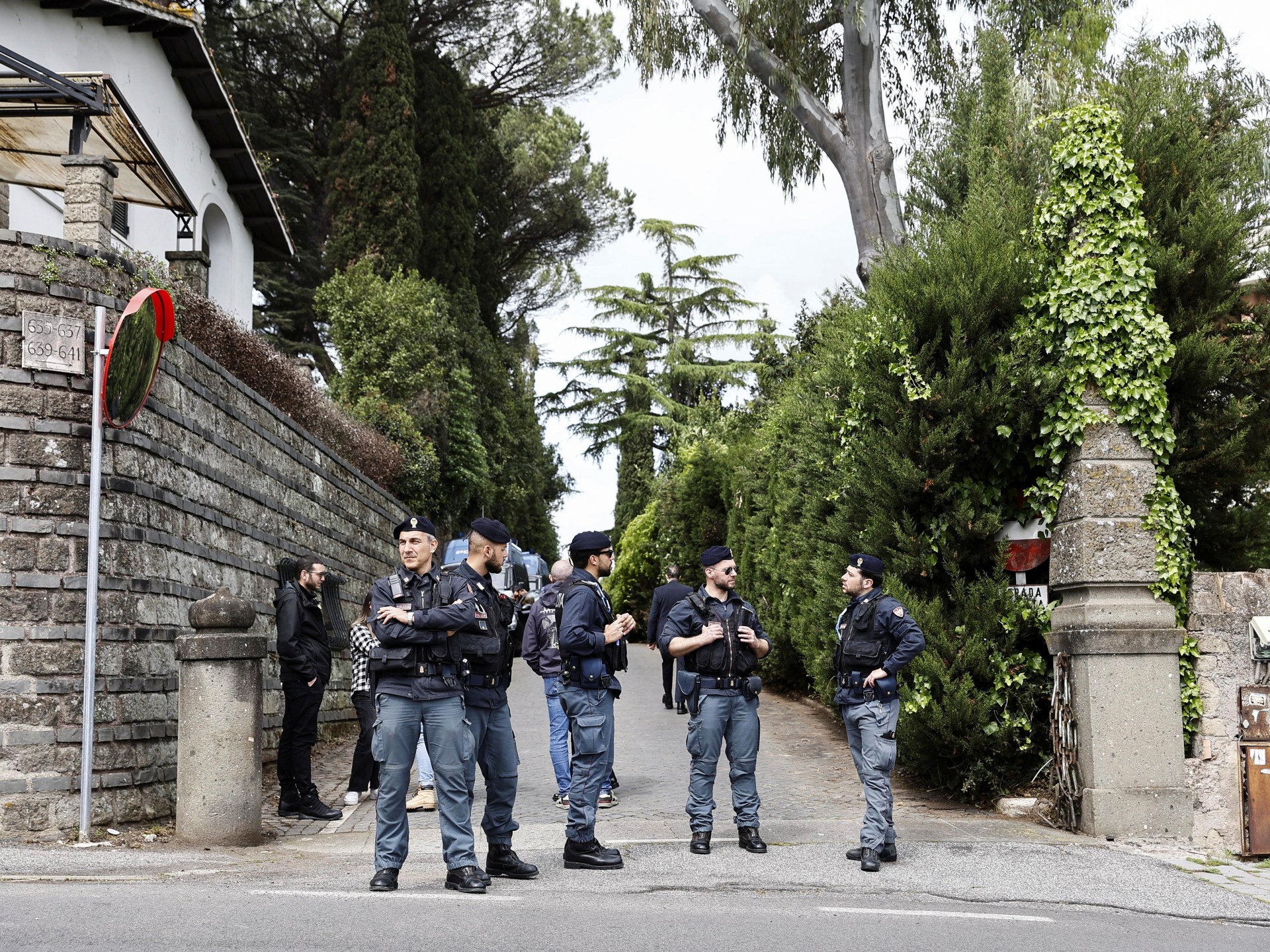
After technical talks, senior negotiators expected to reunite on April 26, according to Iran’s foreign ministry.
Iran and the United States have completed a second round of indirect nuclear negotiations, which Iran’s foreign minister has described as “constructive” and moving forward with further meetings planned in the coming week.
Abbas Araghchi and US Middle East envoy Steve Witkoff held four hours of indirect talks at Oman’s embassy in the Italian capital, Rome, on Saturday, according to Araghchi.
“We succeeded in reaching a better understanding on certain principles and goals,” the diplomat was quoted by the semiofficial Tasnim news agency as saying. “The negotiations were conducted in a constructive atmosphere and are progressing.”
There has been no readout yet of the meeting from the US side.
The delegations – led by Araghchi and Witkoff, a billionaire real estate executive whom US President Donald Trump has dispatched on numerous foreign policy missions – stayed in separate rooms in the embassy as Omani Foreign Minister Badr al-Busaidi shuttled messages between them, according to Iranian officials.
Iran’s Ministry of Foreign Affairs said the parties will hold more indirect, technical-level talks in the coming days, followed by another meeting with senior officials on April 26.
There were useful indirect talks today between Iran and the United States conducted by Oman Foreign Minister in a constructive atmosphere.
The two sides agreed to continue the indirect talks in few days at technical level to be followed by another round at their own level on…
— Esmaeil Baqaei (@IRIMFA_SPOX) April 19, 2025
“I hope that after next week’s technical sessions, we’ll be in a better position,” Araghchi said, according to Tasnim. “There’s no reason for excessive optimism or pessimism.”
‘Negotiations to pick up’
Al Jazeera’s James Bays, reporting near the Omani diplomatic compound in Rome, said the Iranian response was “very positive” for a delegation that “had seemed pretty negative going into the talks”.
Next week’s planned talks mean “the pace of negotiations is going to be picked up”, Bays said.
The latest meeting comes a week after Iran and the US came together in Muscat for their first high-level discussions since Trump in 2018 unilaterally abandoned a landmark nuclear accord signed and brokered by world powers in 2015.
The Iranians “are looking for a kind of consistency when it comes to the current talks”, Al Jazeera’s Tohid Asadi reported from Tehran.
Will US accept civilian nuclear programme?
Western governments, including the US, have long accused Iran of seeking to develop nuclear weapons – an allegation Tehran has denied, insisting its nuclear programme is solely for peaceful civilian use. On Wednesday, the head of the International Atomic Energy Agency, Rafael Grossi, said Iran was “not far” from possessing a nuclear weapon.
Grossi was also in Rome on Saturday meeting Italian Foreign Minister Antonio Tajani. Grossi’s nuclear watchdog would likely be central in verifying compliance by Iran should a deal be reached, as it did with the 2015 accord.
The US and Iran have had no diplomatic relations since shortly after Iran’s 1979 Islamic Revolution. After returning to office in January, Trump revived his “maximum pressure” sanctions campaign against Tehran, but in March, he sent a letter to Iranian Supreme Leader Ali Khamenei calling for renewed negotiations – while warning of military consequences if diplomacy fails.
“I’m not in a rush” to use force, Trump said on Thursday. “I think Iran wants to talk.”
On Friday, Araghchi said the US showed “a degree of seriousness” during the first round of talks but questioned Washington’s “intentions and motivations”.
Bays said the heart of the dispute remains whether Iran may maintain a civilian nuclear programme – or whether, as hardliners in Washington insist, it must dismantle its nuclear programme entirely.
“All they’ve been talking about last week in Muscat and here in Rome is a framework for the discussions and what they want to achieve,” Bays said. “They have not been discussing the nuclear detail, … and the devil is in the detail on these things.”
Middle East
Over 170 arrested for attacks on Pakistan KFC outlets in Gaza war protests | Israel-Palestine conflict News
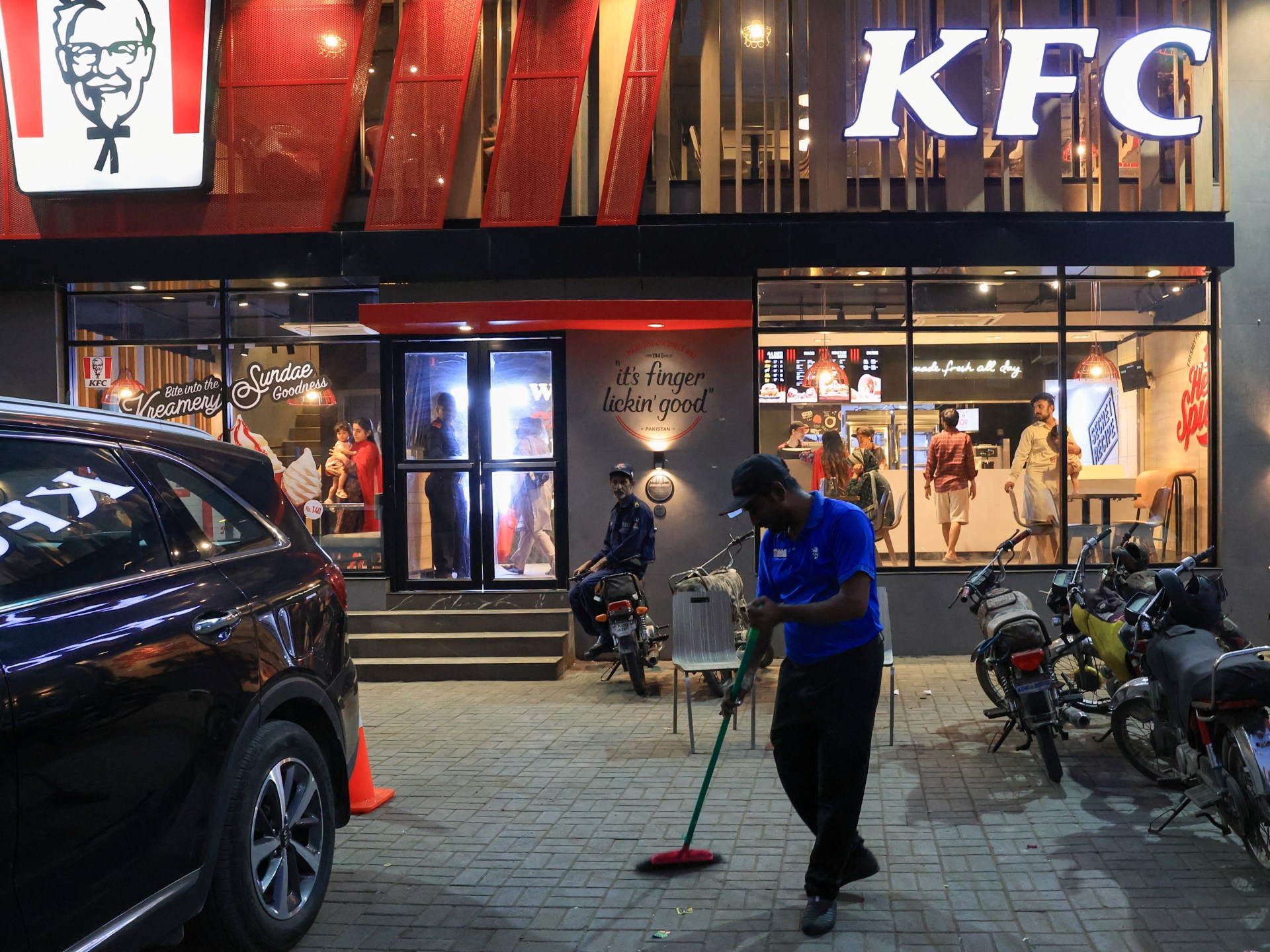
Western brands have been hit by boycotts and other forms of protests in Muslim-majority countries due to the Gaza war.
Police have arrested close to 200 people in Pakistan in recent weeks after more than 10 group attacks on outlets of the United States-based fast-food chain KFC, sparked by anti-US sentiment, unconditional US backing for Washington’s close ally Israel and opposition to Israel’s war in Gaza, officials say.
The fast-food chain has become a target of protest and boycott calls by Islamist parties since the start of the war in Gaza as they link the brand to US support for Israel.
At least 178 people have been arrested, the officials said this week.
Police in major cities in Pakistan – including the southern port city of Karachi, the eastern city of Lahore and the capital, Islamabad – confirmed at least 11 incidents in which KFC chicken restaurants were attacked by protesters armed with sticks and vandalised.
A police official, who spoke on condition of anonymity, said one KFC employee was shot and killed this week in a store on the outskirts of Lahore by unknown gunmen. The official added there was no protest at the time and police were investigating whether the killing was politically motivated or for some other reason.
In Lahore, police said they were ramping up security at 27 KFC outlets after two attacks took place and five were prevented.
“We are investigating the role of different individuals and groups in these attacks,” Faisal Kamran, a senior Lahore police officer told the Reuters news agency, adding that 11 people, including a member of the Islamist party Tehreek-e-Labbaik Pakistan (TLP), have been arrested in the city. He added the protests were not officially organised by the TLP.
TLP spokesman Rehan Mohsin Khan said the group “has urged Muslims to boycott Israeli products, but it has not given any call for protest outside KFC”.
“If any other person claiming to be a TLP leader or activist has indulged in such activity, it should be taken as his personal act which has nothing to do with the party’s policy,” Khan said.
Western brands have been hit by boycotts and other forms of protests in Pakistan, other Muslim-majority countries and several Western nations over Israel’s military offensive in the Gaza Strip.
In February last year, McDonald’s cited boycott campaigns in the Middle East, Indonesia and Malaysia for sales growing just 0.7 percent during the fourth quarter of 2023, compared with 16.5 percent growth in the same quarter the previous year.
Unilever – which produces Dove soap, Ben & Jerry’s ice cream and Knorr stock cubes – also said sales in Indonesia in the same quarter had experienced a double-digit decline as a result of “geopolitically focused, consumer-facing campaigns”.
A KFC restaurant in the Pakistan-administered region of Kashmir was also set on fire in March last year as protesters chanted “Free Palestine.”
More than 51,900 people have been killed in Gaza during Israel’s war, which began 18 months ago.
At least 1,139 people were killed in Israel during the Hamas-led attacks of October 7, 2023, and more than 200 were taken captive.
KFC and its parent company Yum Brands have not yet responded to news of the arrests in Pakistan.
-

 Sports2 days ago
Sports2 days agoAaron Rodgers ‘not holding anybody hostage’ as he decides his future, retirement a possibility
-

 Education2 days ago
Education2 days agoHarvard’s battle with the Trump administration is creating a thorny financial situation
-
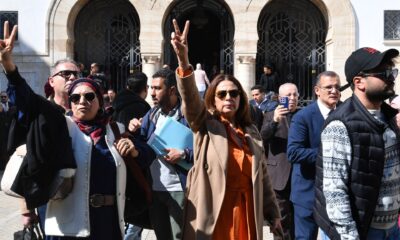
 Middle East1 day ago
Middle East1 day agoTunisian court hands opposition figures lengthy jail terms | Human Rights News
-

 Conflict Zones2 days ago
Conflict Zones2 days agoTrump says US may ‘pass’ on helping end war if Russia, Ukraine resist deal | Russia-Ukraine war News
-
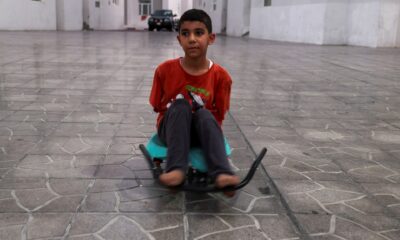
 Conflict Zones2 days ago
Conflict Zones2 days ago‘How do I live like this?’ asks Gaza boy who lost arms in Israeli attack | Gaza News
-
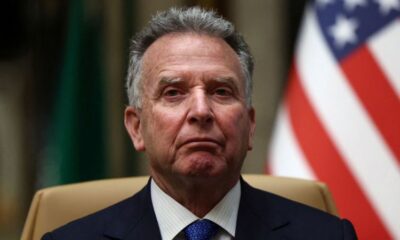
 Europe2 days ago
Europe2 days agoTrump’s ‘lone ranger’: How Steve Witkoff became the defacto point man on America’s foreign policy challenges
-

 Europe1 day ago
Europe1 day agoPope Francis’ Easter is going to look a little different this year. Here’s how
-
Asia13 hours ago
Hong Kong’s oldest Democratic Party is shutting down as Beijing leaves no room for dissent




